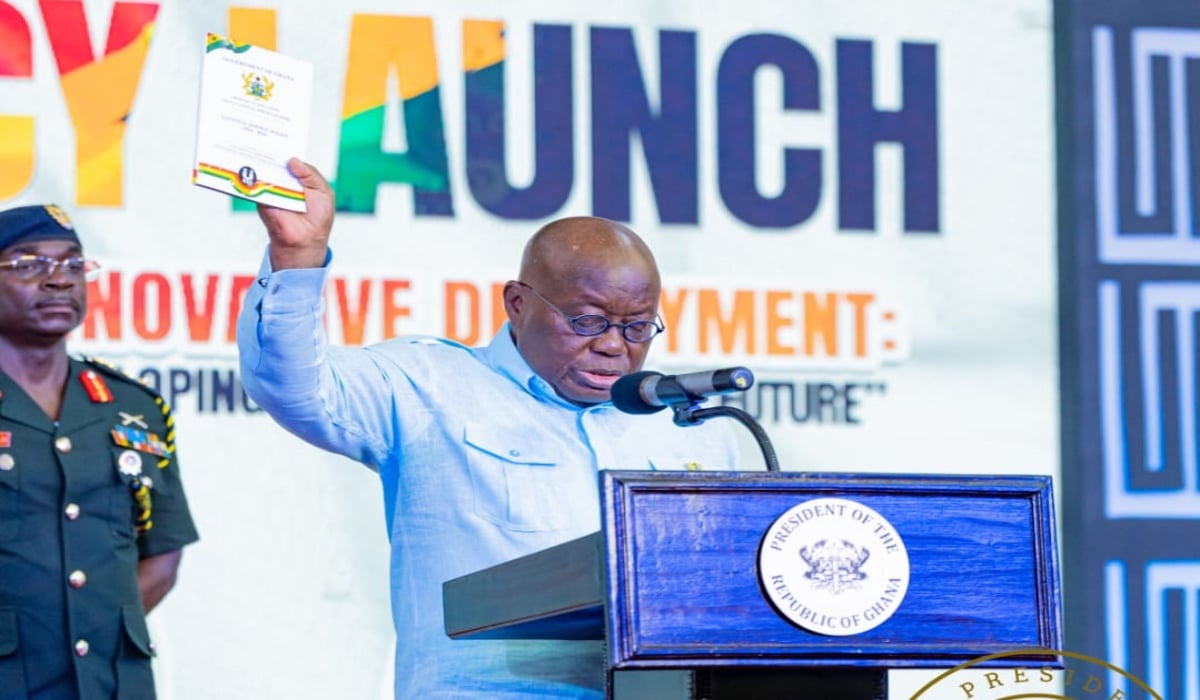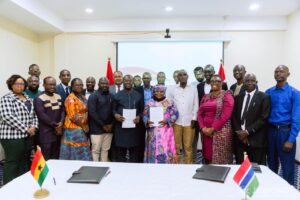The President of the Republic, Nana Addo Dankwa Akufo-Addo, on Monday, 15th April, 2023 launched a new policy document that sets out the broad framework for transforming the National Service Scheme from just merely mobilising and deploying young graduates into various sectors of the Ghanaian economy, into becoming a world-class institution, which shapes service personnel for success in the professional world.
In a move signifying a key departure from the established norms and practices of the scheme, this policy document, according to President Akufo-Addo, provides the needed direction for the scheme’s delivery and align it with government’s agenda to ensure that service personnel are adequately prepared for the transition from school to the world of work.
With the assurances of providing the enabling environment, resources, and logistical support to ensure the successful and effective implementation of this policy, he stated that, the document, launched under the theme, “Innovative Deployment: Developing Prospects for the Future,” should be cherished by the state, international partners and friends of Ghana, the diplomatic corps, user agencies, universities, and other institutions.
Touching on the overall responsibility of the state to provide direction and opportunities for the development of the full potential of its citizens, he said government have endeavoured to build the human capital of our country through initiatives such as the Free SHS and Free TVET Programmes, and various other interventions.
“The Free SHS programme has increased significantly the number of institutional graduates, with some one hundred and fifty thousand young Ghanaians graduating from tertiary institutions annually. As this number continues to rise, it is imperative that the National Service Scheme, as the institution responsible for transforming this critical mass, is strengthened, he said.
The 2021 National Population and Housing Census conducted by the Ghana Statistical Service indicates that the youth (15-35 years) make up some thirty-eight-point-two percent (38.2%) of Ghana’s total population, with tertiary graduates comprising a substantial component of this demographic.
The Akufo-Addo government, in recognition of this impressive resource and immense potential, creativity, and innovation of Ghanaian youth, has through initiatives such as the Youth in Agriculture, the YouStart Programme, the National Entrepreneurship and Innovation Programme, and support for enterprises of young entrepreneurs by the Ghana Enterprises Agency shown commitment to providing the youth with opportunities to realize their dreams since 2017.
That’s is why, he said, “the policy being launched today will enhance capacities, reinforce structures, and enable the National Service Scheme to effectively mobilise and deploy increasing numbers of graduates to areas of national priority.”
He told the gathering that the policy will “operate in a manner that provides training, mentoring and coaching for prospective and transitioning national service personnel, bridging the gap between theory learned in school and the practical demands of the workforce.”
Additionally, the State will provide the National Service Scheme with relevant backing to complement other pro-youth institutions and interventions to give all-round and integrated development of the young graduates that pass through the Scheme.
He was pleased to note that the formulation of this policy involved the engagement of key stakeholders from various sectors, including Ministries, Departments and Agencies, International Partners, Members of the Diplomatic Corps, Traditional Authorities, Policy Think Tanks, the Academia and Civil Society Organisations and urged all of these stakeholders to maintain the spirit of collaboration during the implementation phase.
Amongst others, he urged stakeholders to implement with increased vigour , aspects of the policy such as the introduction of pedagogy training in collaboration with Transforming Teaching, Education & Learning (T-TEL) and the National Teaching Council (NTC) to complement efforts to reduce the pupil-teacher ratio.
He also called on them to implement an MSME Accounting Aid programme to help formalise the informal sector, form specialised partnerships to promote tourism in Ghana through the NSS-MOTAC Support Programme and expand experimental agricultural programmes for National Service Personnel under the Sekeyere Kumawu Economic Enclave, with support from the Ministry of Finance under the Ghana CARES Obaatampa Programme and Agri-Impact Ghana.
Other areas include the implementation of a metric application system to improve efficiency and eliminate waste and redundancies and establish ICT Hubs for training Service Personnel in IT solutions as trainers for communities in Ghana.
He concluded with confidence that, “with the implementation of this new policy document, the National Service Scheme will play an even more vital role in shaping the future of our nation and empowering our youth to fulfill their potential.”






